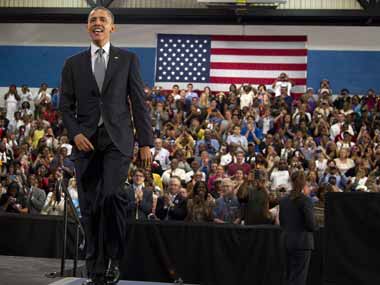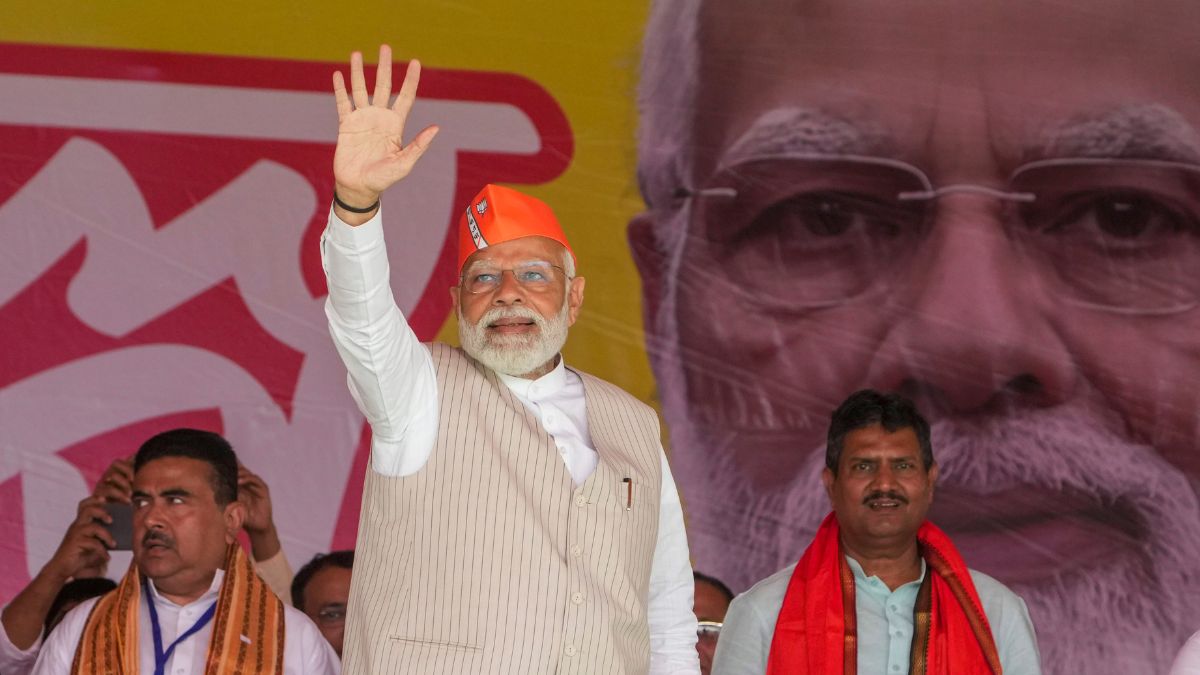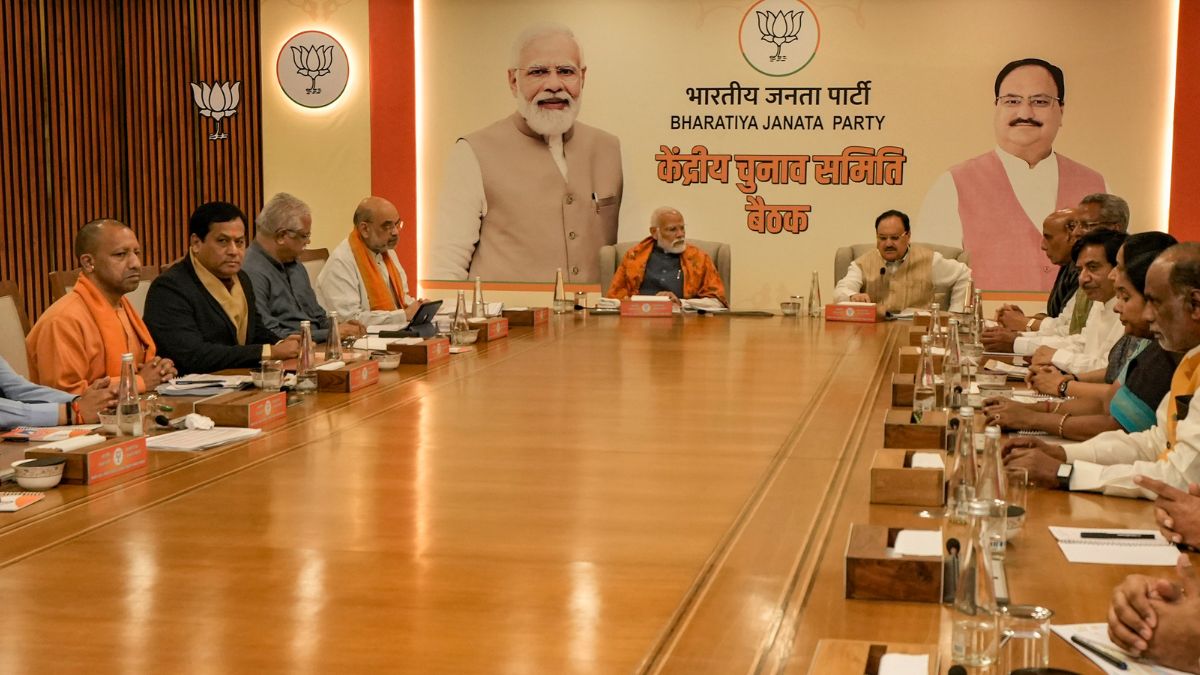One has to admire the audacity of Shree Narendra Modi. While the rest of the country was flocking into multiplexes to watch Chennai Express, Modi went to Hyderabad and unveiled his newest avatar – Barack Obama. An odd choice given that Obama’s State Department is yet to even give Modi a visa to visit that country. No matter. If Modi cannot go to Obama, Obama will be channeled to Modi.
“Yes, we can,” the man who would be PM said to a packed rally. “Yes, we can. Yes, we will do.” That’s all it took for the media to anoint it Narendra Modi’s “ Barack Obama moment .” “Now we have a FAKE DESI OBAMA too,” tweeted out the Congress’ Digvijaya Singh.
As the runaway success of Chennai Express demonstrates, logic is not a prerequisite for believability or success in India. And so Narendra Modi, the darling of the Indian right, happily embraces the campaign slogan of Barack Obama, the most left-of-center American president in recent times, a man his country’s right wing thinks of as few shades shy of Communist.
Perhaps Modi’s much vaunted team of social media savvy IIM-branded advisors thought this would be a brilliant gambit to cement their leader’s coveted “youth connect.” The President of the United States is probably unaware of this but Modi’s cyber army is hellbent on ensuring that his “likes” on Facebook and followers on Twitter cross Obama’s score in the near future. The Times of India reported that the BJP’s IT cell have asked all Modi fan pages to merge with the parent fan page to achieve this. Perhaps this “Yes, we can” is the latest salvo in this re-branding of the Lion of Gujarat. Alas, as my colleague Lakshmi Chaudhry points out on Twitter, on Modi’s lips “Obama’s catchphrase jumps a school of sharks.”
What Modi and his team don’t realize, or choose to ignore, is when Obama used that phrase he was sending a potent and powerful signal. He was not just looking for a catchy marching slogan. Obama had used the slogan during his race for the Senate but it really caught the nation’s attention during his first presidential campaign. He had just finished second to Hillary Clinton in the New Hampshire primary. She was the pedigreed front runner with huge name recognition. He was the bright young upstart, a first-term senator.
Next up was Nevada with two powerful unions – the Culinary Workers Union whose 60,000 members worked in the casinos and resorts of the state and the Nevada chapter of SEIU. Obama’s Yes, We Can was a direct message to woo the all-important labour constituency. He was borrowing and paraphrasing Si, se puede the battlecry that one of America’s most legendary labour leaders Cesar Chavez used to organize farmworkers up and down California. Chavez used that defiant slogan during a 24-day-fast and since then it has become the motto of United Farm Workers in America. Obama was reaching out to both labour and the Hispanics – two must-have constituencies for a Democratic candidate. In a huge blow to Clinton, the Culinary Workers Union and the SEIU both endorsed Obama.
In jumping onto the “Yes, we can” bandwagon, Modi’s team clearly confuses style for substance, slogan over history, a catchphrase for a movement. They are not the only ones. Rahul Gandhi’s emotionally-charged speech to his party after becoming the vice president was ridiculously dubbed as his Obama moment . Mamata Banerjee’s campaign was happy to draw comparisons with Obama as well. Narendra Modi is the latest. He is a powerful political leader with enormous appeal in India. But he is not an Obama.
Modi’s handlers would do well to realize that just being popular does not an Obama make. Neither does having a social media strategy. Even the much bally-hooed youth connect, which was evident in plenty in Modi’s Hyderabad rally, does not make him an Obama. All of those things helped propel Obama to victory but in themselves none of them made even Obama Obama.
What made Obama so powerful was the symbolism of an African American man, part of a minority that had been brought to America as slaves and treated as worse than second-class citizens for much of its history, becoming the President of the United States. It was a hugely emotional moment in American history where television anchors teared up because no one was quite prepared for that first sight of a First Family that looked like the Obamas striding out to greet the throngs on election night in Chicago. If Narendra Modi ever becomes prime minister of India it will be a moment of enormous triumph but hardly one of a cathartic national reconciliation with a bitter divided past.
Narendra Modi is not a minority. He is not the outsider in his own party. He is its all-but-anointed candidate for prime minister. He might not be a Brahmin but he is regarded very much as the standard bearer of Hindutva in Indian politics. Modi’s symbolism is as the candidate of a restless majority which feels India’s development is thwarted by pandering to minorities.
There is a certain simplistic overlap in their rhetoric. Obama famously said there were no red states, and no blue states, only the United States of America. Modi flagged off his party’s campaign in Hyderabad with an “India first” slogan.
But the difference between the two could not be more stark. Modi owes his appeal to a strident polarizing my-way-or-the-highway persona. When he refused to put on a Muslim skullcap that was being offered to him, he sent the signal that he was not going to pander to minorities but if they played along nicely they could all get on the his Gujarat-style development train.
Obama, by contrast, knit together an election victory with the help of patchwork quilt of minority groups – African Americans, gays and lesbians, Hispanics, women etc. He used his own minority status to reassure these groups that he could be their man in Washington. His entire career, sometimes to his detriment and the impatience of his supporters, has been about being the anti-polarizer. In that “yes, we can speech” in New Hampshire he said “we will remember that there is something happening in America, that we are not as divided as our politics suggest, that we are one people, we are one nation.” He is the man who wants to get all sides on board whether it’s on health care reform or race politics. Whether he could deliver it or not, Obama was the man America looked to for a healing touch. In his very first speech after his 2008 victory Obama reached out . “To those Americans whose support I have yet to earn, I may not have won your vote, but I hear your voices, I need your help, and I will be your president too.”
That is hardly what Modi is selling. His entire USP is about a father-knows-best tough love that brooks no opposition. And Modi, to his credit, has never pretended otherwise. Some of Modi’s supporters are a little puzzled that he is borrowing a leaf from an American campaign instead of finding something more authentically Bharatiya. Others have tried to defensively point out that Modi was actually channeling Swami Vivekananda’s yes-we-can mantra, not copying Obama.
But the biggest danger of trying to take three simple words from Obama’s script and run with them is that Narendra Modi risks coming across not just as a FAKE OBAMA but as a man trying to fit into a suit that was never his to wear.


)




)
)
)
)
)
)
)
)